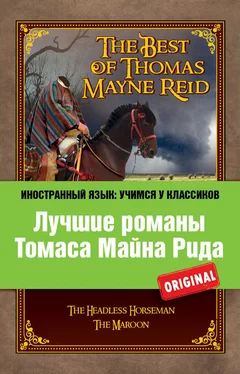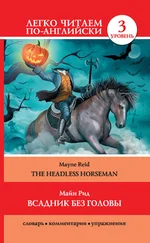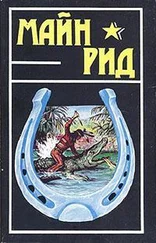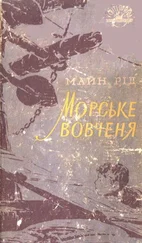Since then he had learnt that he was Maurice’s deadliest enemy – himself excepted.
With these data to proceed upon the ex-captain had called the Mexican to his counsels, and the two were often closeted together in the chamber of the invalid.
There was nothing in all this to excite suspicion – even had Calhoun cared for that. His visitor was a dealer in horses and horned cattle. Some transaction in horseflesh might be going on between them. So any one would have supposed. And so for a time thought the Mexican himself: for in their first interview, but little other business was transacted between them. The astute Mississippian knew better than to declare his ultimate designs to a stranger; who, after completing an advantageous horse-trade, was well supplied with whatever he chose to drink, and cunningly cross-questioned as to the relations in which he stood towards Maurice the mustanger.
In that first interview, the ex-officer volunteers learnt enough, to know that he might depend upon his man for any service he might require – even to the committal of murder.
The Mexican made no secret of his heartfelt hostility to the young mustanger. He did not declare the exact cause of it; but Calhoun could guess, by certain innuendos introduced during the conversation, that it was the same as that by which he was himself actuated – the same to which may be traced almost every quarrel that has occurred among men, from Troy to Texas – a woman!
The Helen [178] in this case appeared to be some dark-eyed donçella dwelling upon the Rio Grande, where Maurice had been in the habit of making an occasional visit, in whose eyes he had found favour, to the disadvantage of her own conpaisano .
The Mexican did not give the name; and Calhoun, as he listened to his explanations, only hoped in his heart that the damsel who had slighted him might have won the heart of his rival.
During his days of convalescence, several interviews had taken place between the ex-captain and the intended accomplice in his purposes of vengeance – enough, one might suppose, to have rendered them complete.
Whether they were so, or not, and what the nature of their hellish designs, were things known only to the brace of kindred confederates. The outside world but knew that Captain Cassius Calhoun and Miguel Diaz – known by the nickname “El Coyote,” appeared to have taken a fancy for keeping each other’s company; while the more respectable portion of it wondered at such an ill-starred association.
There are no sluggards on a Texan plantation. The daybreak begins the day; and the bell, conch, or cow-horn, that summons the dark-skinned proletarians to their toil, is alike the signal for their master to forsake his more luxurious couch.
Such was the custom of Casa del Corvo under its original owners: and the fashion was followed by the family of the American planter – not from any idea of precedent, but simply in obedience to the suggestions of Nature. In a climate of almost perpetual spring, the sweet matutinal moments are not to be wasted in sleep. The siesta [179] belongs to the hours of noon; when all nature appears to shrink under the smiles of the solar luminary – as if surfeited with their superabundance.
On his reappearance at morn the sun is greeted with renewed joy. Then do the tropical birds spread their resplendent plumage – the flowers their dew-besprinkled petals – to receive his fervent kisses. All nature again seems glad, to acknowledge him as its god.
Resplendent as any bird that flutters among the foliage of south-western Texas – fair as any flower that blooms within it – gladdest was she who appeared upon the housetop of Casa del Corvo.
Aurora herself, rising from her roseate couch, looked not fresher than the young Creole, as she stood contemplating the curtains of that very couch, from which a Texan sun was slowly uplifting his globe of burning gold.
She was standing upon the edge of the azotea that fronted towards the east; her white hand resting upon the copestone of the parapet still wet with the dews of the night, under her eyes was the garden, enclosed within a curve of the river; beyond the bluff formed by the opposite bank; and further still, the wide-spreading plateau of the prairie.
Was she looking at a landscape, that could scarce fail to challenge admiration? No.
Equally was she unconscious of the ascending sun; though, like some fair pagan, did she appear to be in prayer at its apprising!
Listened she to the voices of the birds, from garden and grove swelling harmoniously around her?
On the contrary, her ear was not bent to catch any sound, nor her eye intent upon any object. Her glance was wandering, as if her thoughts went not with it, but were dwelling upon some theme, neither present nor near.
In contrast with the cheerful brightness of the sky, there was a shadow upon her brow; despite the joyous warbling of the birds, there was the sign of sadness on her cheek.
She was alone. There was no one to take note of this melancholy mood, nor inquire into its cause.
The cause was declared in a few low murmured words, that fell, as if involuntarily, from her lips.
“He may be dangerously wounded – perhaps even to death?”
Who was the object of this solicitude so hypothetically expressed?
The invalid that lay below, almost under her feet, in a chamber of the hacienda – her cousin Cassius Calhoun?
It could scarce be he. The doctor had the day before pronounced him out of danger, and on the way to quick recovery. Any one listening to her soliloquy – after a time continued in the same sad tone – would have been convinced it was not he.
“I may not send to inquire. I dare not even ask after him. I fear to trust any of our people. He may be in some poor place – perhaps uncourteously treated – perhaps neglected? Would that I could convey to him a message – something more – without any one being the wiser! I wonder what has become of Zeb Stump?”
As if some instinct whispered her, that there was a possibility of Zeb making his appearance, she turned her eyes towards the plain on the opposite side of the river – where a road led up and down. It was the common highway between Fort Inge and the plantations on the lower Leona. It traversed the prairie at some distance from the river bank; approaching it only at one point, where the channel curved in to the base of the bluffs. A reach of the road, of half a mile in length, was visible in the direction of the Fort; as also a cross-path that led to a ford; thence running on to the hacienda. In the opposite direction – down the stream – the view was open for a like length, until the chapparal on both sides closing in, terminated the savanna.
The young lady scanned the road leading towards Fort Inge. Zeb Stump should come that way. He was not in sight; nor was any one else.
She could not feel disappointment. She had no reason to expect him. She had but raised her eyes in obedience to an instinct.
Something more than instinct caused her, after a time, to turn round, and scrutinise the plain in the opposite quarter.
If expecting some one to appear that way, she was not disappointed. A horse was just stepping out from among the trees, where the road debouched from the chapparal. He was ridden by one, who, at first sight, appeared to be a man, clad in a sort of Arab costume; but who, on closer scrutiny, and despite the style of equitation – à la Duchesse de Berri – was unquestionably of the other sex – a lady. There was not much of her face to be seen; but through the shadowy opening of the rebozo – rather carelessly tapado [180] – could be traced an oval facial outline, somewhat brownly “complected,” But with a carmine tinting upon the cheeks, and above this a pair of eyes whose sparkle appeared to challenge comparison with the brightest object either on the earth, or in the sky.
Читать дальше
Конец ознакомительного отрывка
Купить книгу











